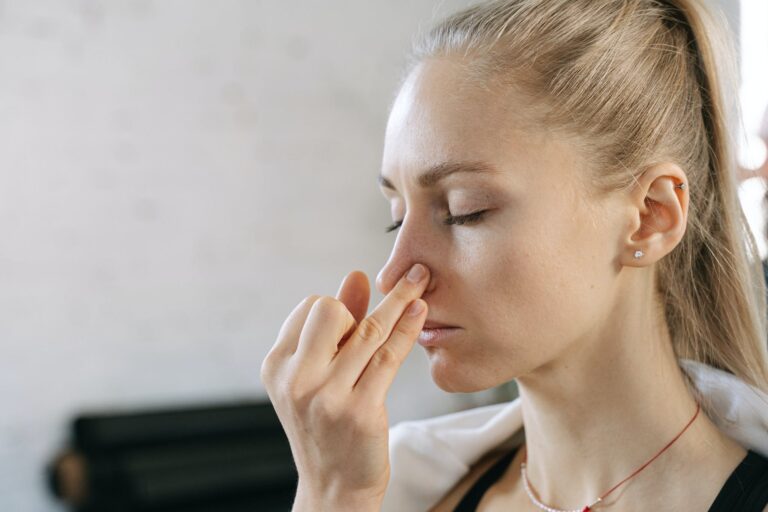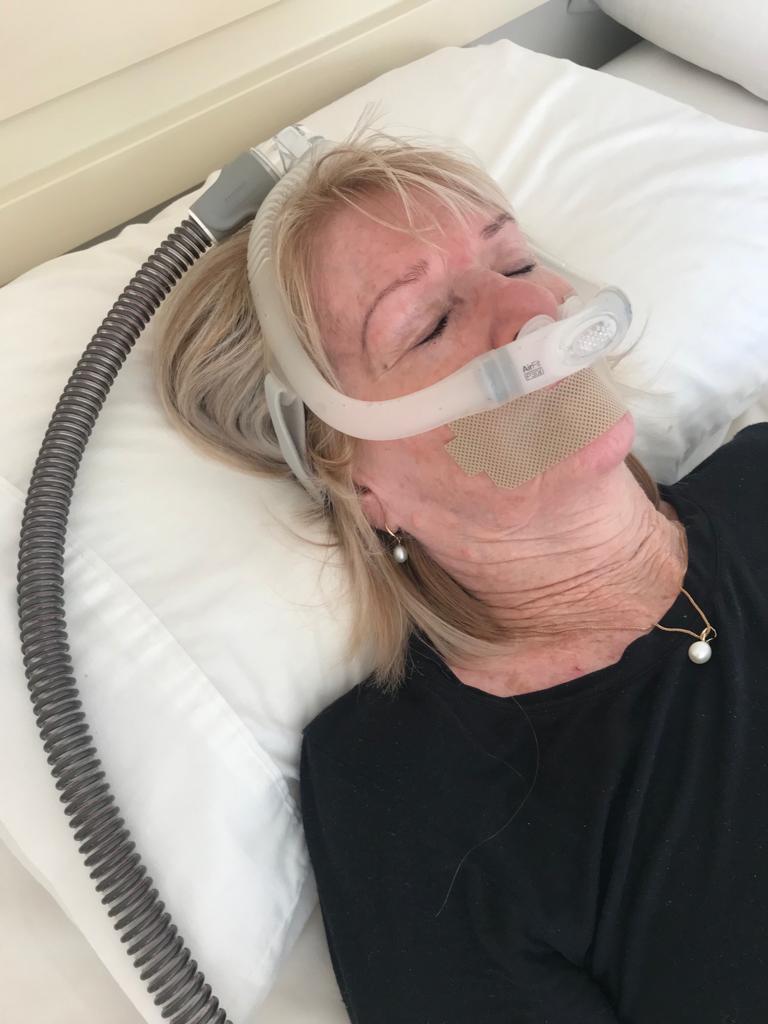How to prevent mouth breathing at night:
Mouth breathing at night can be an uncomfortable and disruptive problem. It can lead to dry mouth, sore throat, and difficulty sleeping. Fortunately, there are several steps you can take to help prevent mouth breathing at night. Mouth breathing during sleep can be a common and often overlooked issue that can lead to a range of problems, from snoring and dry mouth to disrupted sleep and decreased overall well-being. Breathing through the mouth at night can occur for various reasons, and addressing it is essential for achieving restful, uninterrupted sleep. In this guide, we will explore the causes of mouth breathing at night, its potential health consequences, and a variety of strategies to help prevent this nighttime breathing habit and restore healthy nasal breathing patterns. By implementing these techniques, you can significantly improve the quality of your sleep and overall health.
The impact of mouth breathing on sleep:
Mouth breathing at night can have a significant impact on your sleep quality and overall well-being. When you breathe through your mouth while sleeping, it bypasses the natural filtration and humidification processes of your nose. It can lead to a host of problems that can disrupt your sleep and leave you feeling exhausted the next day.
One of the main consequences of mouth breathing during sleep is dry mouth. When you breathe through your mouth, the airflow can cause your saliva to evaporate, resulting in a dry and uncomfortable sensation in your mouth. It can also lead to a sore throat, as the lack of moisture can irritate your throat tissues.
Additionally, mouth breathing can hinder your ability to get a restful night’s sleep. Breathing through your mouth can create a higher likelihood of snoring as the air passes more quickly through the relaxed muscles of the throat. It can be bothersome not only for you but also for your partner, who may be disturbed by the noise.
Moreover, mouth breathing can lead to decreased oxygen intake during sleep. Breathing through your nose helps to filter and warm the air before it reaches your lungs, ensuring that you receive a steady supply of oxygen. When you breathe through your mouth, this process is compromised, and you may not be getting enough oxygen throughout the night.
All of these factors can result in poor sleep quality, leaving you feeling tired, irritable, and unfocused during the day. It can also contribute to other health issues, such as dry, cracked lips, bad breath, and dental problems.
Lifestyle factors that may contribute to Mouth Breathing:
Lifestyle factors can play a significant role in contributing to mouth breathing at night. By addressing these factors, you can take steps to prevent mouth breathing and improve your overall sleep quality. Here are some lifestyle factors that may contribute to mouth breathing and how you can make changes to prevent it:
1. Sleeping position:
Your sleeping position can affect your breathing patterns. Sleeping on your back can increase the likelihood of mouth breathing, as gravity can cause your tongue to fall back and block your airway. To prevent this, try sleeping on your side with a supportive pillow to keep your airway open and promote nasal breathing.
2. Allergens and irritants:
Dust, pollen, pet dander, and other allergens can trigger nasal congestion, making it difficult to breathe through your nose. Minimize exposure to these irritants by keeping your home clean and dust-free. Consider using hypoallergenic bedding and investing in an air purifier to improve air quality in your bedroom.
3. Smoking:
Smoking can irritate and inflame your nasal passages, leading to congestion and difficulty breathing through your nose. If you’re a smoker, consider quitting to improve your nasal breathing and overall health.
4. Alcohol and sedatives:
Alcohol and sedatives can relax the muscles in your throat, increasing the likelihood of mouth breathing and snoring. Limit your intake of these substances incredibly close to bedtime to promote nasal breathing and reduce mouth breathing.
5. Stress and anxiety:
Stress and anxiety can cause shallow breathing or hyperventilation, leading to a reliance on mouth breathing rather than nasal breathing. Incorporate stress management techniques into your daily routine, such as meditation, deep breathing exercises, or yoga, to promote nasal breathing and reduce mouth breathing.
By making these lifestyle changes, you can create an environment that supports healthy breathing patterns and helps prevent mouth breathing at night. Remember, it may take time to adjust to these changes, so be patient with yourself. Consult with a healthcare professional or sleep specialist if your mouth breathing persists or worsens for further guidance and support on how to prevent mouth breathing at night.
Tips for improving mouth breathing:
If you’re struggling with mouth breathing at night, there are several tips you can follow to help improve your breathing patterns and find relief. Here are some practical tips for improving mouth breathing:
1. Practice breathing exercises:
Breathing exercises can help strengthen your nasal passages and promote better nasal breathing. For example, try diaphragmatic breathing, which involves deep breaths through your nose, allowing your abdomen to rise and fall with each breath. This exercise can help expand your lungs and improve nasal breathing.
2. Keep a clean sleep environment:
Dust, allergens, and pet dander can contribute to nasal congestion and make it difficult to breathe through your nose. Make sure to regularly clean your bedroom and wash your bedding to minimize allergens. Consider using an air purifier to filter out any airborne particles that can affect your nasal breathing.
3. Use a humidifier:
Dry air can worsen mouth breathing. Consider using a humidifier in your bedroom to add moisture to the air. It can help prevent your mouth and throat from drying out during the night and promote nasal breathing.
4. Sleep with your head elevated:
Elevating your head while sleeping can help improve nasal airflow and reduce the likelihood of mouth breathing. Try using a supportive pillow or raising the head of your bed to achieve a more upright position.
5. Stay hydrated:
Drinking enough water throughout the day can help prevent dry mouth and throat, which can contribute to mouth breathing. Aim to consume at least 8 cups of water daily, and limit your intake of dehydrating substances like alcohol and caffeinated beverages.
By following these tips, you can improve your mouth breathing and promote better nasal breathing. Remember, it may take time and practice to establish these habits, but the benefits to your sleep and overall well-being are worth it. If your mouth breathing persists or worsens, don’t hesitate to consult with a healthcare professional or sleep specialist for further guidance and support.
By incorporating these strategies and seeking professional guidance if needed, you can improve your breathing patterns, prevent mouth breathing at night, and enjoy better sleep and overall well-being. Remember, consistency and patience are essential, so stay committed to making these changes and take control of your sleep health. Good luck on your journey to peaceful, nose-breathing nights!





